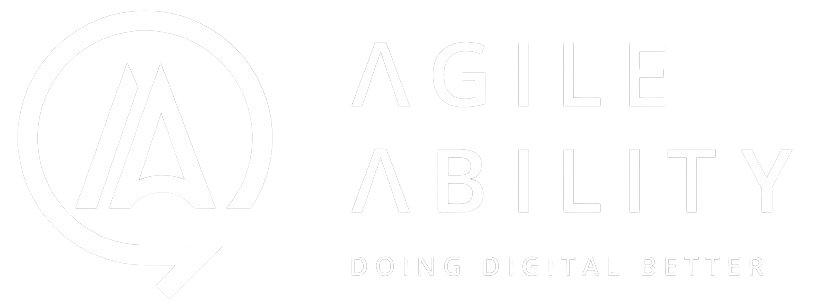
What Is A Paid Search (PPC)?
A paid search – also known as Pay Per Click (PPC) – is a type of Digital Marketing tool where search engines allow advertisers to show their ads on search engine result pages (SERPs). When you type something on Google, you are presented with a list of results, which shows organic results and paid results. Through relevant ads, paid search works to drive traffic to your website.
Paid search results have a little green box with the word ‘Ad’ before the listing, where a company has paid to have their page show up at the top of the list. Google Ads Search Campaign charges you a small amount of money for every person who clicks on that link.
Paid search works upon Pay Per Click (PPC) model, which means you don’t have to pay until someone clicks on your ad. This makes it a controllable and measurable process.
How to Run a Paid Search Campaign
Running a successful paid search campaign can work wonders on your sales. To do it right, follow these steps:
Step 1 – Choose Your Location Settings
You can choose to show your ads in specific countries, cities, and post codes.
Step 2 – Select Your Keywords
Keywords are search terms that people type into search engines to find something, e.g. women’s shoes, best sushi restaurant, or mobile repair shop near me. Finding the right keywords is important. With the help of Google’s free tool, ‘Google Keyword Planner’, you can discover what words people are using throughout the world to find products or services like yours.
Step 3 – Choose Correct Keyword Match Types
There are 5 different keyword match types that impact your paid ads. These are:
- Exact Match – By using exact match keywords, your ads will only be shown when someone searches for the exact term, e.g. womens shoes would also show ads for women shoes.
- Phrase Match – In phrase match, keywords like ‘women shoes’ would trigger your ads if a user searches for the exact phrase with words before or after your phrase, e.g. red women shoes, or women shoes stores.
- Broad Match – In this, keywords like ‘women shoes’ would trigger your ads of a user searches for this phrase in any order, and with synonyms too, e.g. cheap women shoes, women blue shoes, or ladies shoes.
- Modified Broad – In modified broad, keywords like +women +shoes would trigger your ads if a user searches for this phrase in any order, e.g. women training shoes, or shoes for women running.
- Negative Keywords – These keywords can be added to your campaigns to stop your ads from running on searches that are not relevant to your business.
Step 4 – Create Your Ads
Create your ads to show when a user searches for one of your keywords. The text ads have 3 primary elements:
- Headline 1, 30 characters
- Headline 2, 30 characters
- Description, 80 characters
A good ad contains – unique selling points, calls to action, and words and phrases that are relevant to your keywords.
Step 5 – Set Your Bids or CPC
You can set your spend limit for a click on one of the ads showing for your keywords. This is called a ‘Bid’ or Max ‘Cost Per Click (CPC)’. Every keyword can have a different bid. Paid search platforms guide you on how much you should bid but ultimately it’s your choice.
Step 6 – Add Ad Extensions
These are additional pieces of information about your business you can show with your ads. Some of the Ad extensions are:
- Sitelinks – links to additional pages on your website
- Callouts – additional text about your business
- Location – your business address
- Call – your phone number, with the ‘click-to-call’ option for users on a mobile
- Price – services or products with cost
- Seller Ratings – automated snippets that may show if your business has reviews on Google My Business or TrustPilot.
Step 7 – Launch Your Ads
Your ads will start showing within a few hours and you can see the results in your paid search accounts. Also, you can pause your campaigns at any time if you feel they’re not working for you.
Local Paid Search Campaigns
In London, when you opt for a paid search (PPC) London demographics, Google will help Londoners see your ad immediately when they search. For a paid search (PPC) Surrey residents will definitely benefit when it’s targeted towards Surrey only.
Localizing paid search campaigns helps you to a greater extent – especially when you’re offering a local product or service. Going for global paid search campaigns can be detrimental in this case, since you’ll be paying for clicks that cannot convert into sales. For Sussex county, opting for paid search (PPC) Sussex demographics will lead to great clicks and thus, sales!
Important Things to Consider While Optimising A Paid Search Campaign
- Hour of Day and Day of Week – Based on performance, you can plan to adjust bids by hour of day or day of week to maximise results. Go to Account Settings > Add Schedule, and you can add your schedule there.
- Location Bid Adjustments – If you want to run your ad nationwide, it’s also important to notice how much budget the huge cities eat versus how well they convert. You can do this by clicking on Campaign > Locations > User location report or Geographic report.
- Keywords and Landing Pages – Check for the keywords that need to be removed from your campaign. Landing pages are crucial to an account’s performance and tend to be most responsible for converting users.
- Ad Copy and Audiences – Ad copy should be tested and optimised before starting an ad campaign.
- Device – The campaign pages and landing pages should be mobile-friendly, since most people use Google search on their smartphones. This will also help you when you need to check how your campaigns are performing on mobile/computer/tablet.
- Match Type Strategy – Broad, Phrase, and Exact match types may all have a specific role in your account, so check what they do for you to make campaign structure choices.
- Use Experiments – This allows you to duplicate your setup, change the areas you want to test, and launch it to run alongside your original. This puts you in control of how much traffic is impacted by the test.
Paid search marketing is a scalable form of web marketing that connects your ad with searchers actively seeking what you provide. By following the steps discussed above and things to consider, you can go about creating a very successful paid search marketing campaign!
Click the button to the right to connect.

